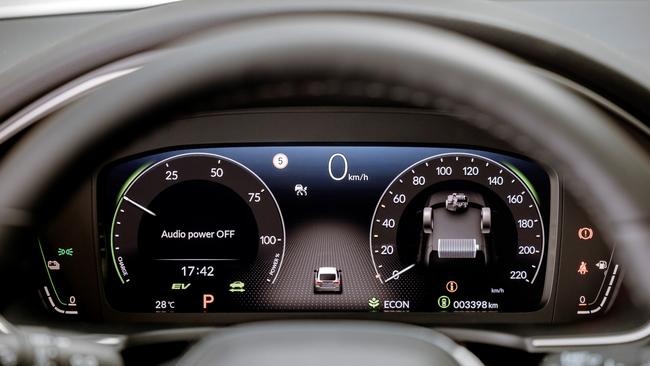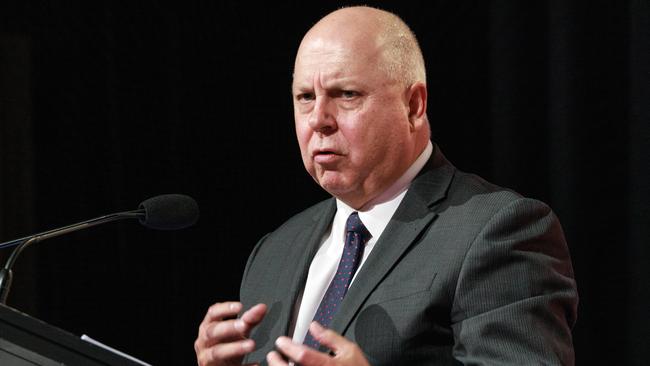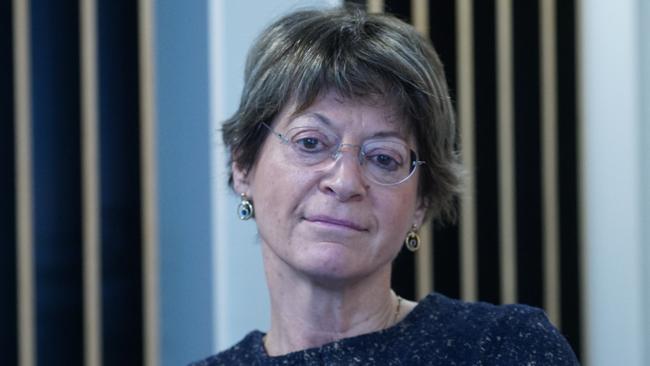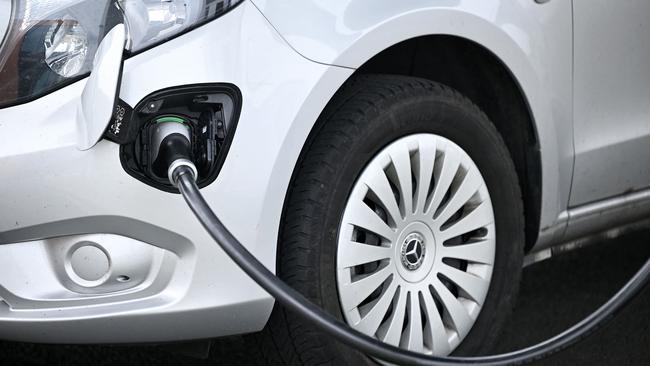High Court finds Victoria’s electric and hybrid car tax ‘unconstitutional’
A landmark decision forcing the Victorian government to wind back its electric vehicle tax, saving motorists about $380 a year, could result in other taxes challenged in the High Court.
Victoria
Don't miss out on the headlines from Victoria. Followed categories will be added to My News.
A landmark decision forcing the Victorian government to scrap its electric vehicle tax, saving motorists about $380 a year, could lead to the new Airbnb tax being challenged.
The High Court on Wednesday declared the state tax on zero and lower emission vehicles was unlawful, with the validity of other taxes now set to come under the microscope.
The decision could see electric vehicle users refunded millions of dollars.

The federal government is now under pressure to reveal whether it will establish a national road user charge, amid concerns about a fall in fuel excise revenue as more electric vehicles hit the road.
In a major victory for two electric vehicle drivers in Melbourne, Chris Vanderstock and Kath Davies, a majority of the court – four out of seven Justices – ruled it was “unconstitutional” for states and territories to tax the use or consumption of goods.
The plaintiffs were backed by the federal government, which could now roll out the tax nationally.
Jacinta Allan on Thursday said the government was having to “closely examine ... many hundreds of pages of decisions” and speak with lawyers before making any announcements regarding the scrapped tax.
The Premier, who was pressed on whether it was right for the government to keep millions of dollars in revenue made through the “unconstitutional” tax, said it was too early to make that call.
“Advice needs to be sought from lawyers and the Department of Treasury and Finance,” she said.
“It’s too early to give any more response than that at this stage because we need to analyze what the decision means.”

Shadow treasurer Brad Rowswell warned the ruling could put the state government’s new Airbnb levy in jeopardy if it too was subject to a future High Court challenge.
“I worry for Victorians because there are a number of other inefficient taxes from 24 years ago, which I’m sure Treasurer Pallas and Premier Allen are considering bringing back from the dead because they’ve got a waste problem,” he said.
But Treasurer Tim Pallas said it was “far too early to tell” whether other taxes introduced by the state government may also be deemed unconstitutional.
In 2021, the tax was forecast to raise $30m over four years. But Mr Pallas on Wednesdays aid the charge had raised just $3.9 million last year, and less than $10m since 2021.
Prior to the judgment, electric and hydrogen vehicle owners were charged 2.8 cents for each kilometre.
The average electric vehicle user will now save about $378 per year.
Partner at leading law firm Arnold Bloch Leibler, Shaun Cartoon, said while it may be difficult to characterise the shortstay levy as a tax on the consumption of goods, the ruling “will certainly give the government pause for thought as to the design of the levy to reduce the prospect of any challenge”.
Victorian Greens deputy leader Ellen Sandell slammed the EV policy as “the worst in the world”, adding she doubted the federal Government will legislate the tax themselves.
A spokeswoman for federal Treasurer Jim Chalmers said he wanted to work with Victoria and other jurisdictions on the “complex” policy.

Opposition transport spokeswoman Bridget McKenzie is demanding the government urgently convene a meeting to discuss the future of the fuel excise and road user charges.
Australia’s peak motoring body boss Michael Bradley said the decision presented a major tax reform opportunity for the federal government.
Mr Bradley said governments should consider apportioning revenue from any electric vehicle road-user charge to future programs that incentivise development and rollout of ultra-low fuel consumption technologies and infrastructure.
The decision comes just weeks after Victorian Ombudsman Deborah Glass released a report into the state’s ZLEV scheme, finding it was inflexible in dealing with complaints and laws around penalties charged to drivers were unclear.

Equity Generation Lawyers senior associate David Hertzberg said the charge was also a major disincentive to drivers taking up the clean technology.
Mr Hertzberg called the judgment “a landmark constitutional decision”.
“Today’s judgment means that Victoria’s electric vehicle tax is invalid. It also sets a precedent which will likely prevent other States from implementing similar legislation,” he said.
Ms Davies said she was “thrilled”, saying Australia has long been lagging behind the rest of the world on the uptake of electric vehicles.
“Now is not the time to be taxing electric vehicles – it’s the time to be doing everything we can to encourage people to make the switch to cleaner cars,” she said.
“The Victorian government has been moving in the wrong direction – it went out alone in taxing electric vehicles, and recently it scrapped its electric vehicle subsidy.”

Mr Vanderstock said the outcome would benefit all Australians, arguing the “ad hoc, piecemeal policy” undermined collective efforts to reduce emissions.
“We believe that Victoria’s electric vehicle tax discouraged people from buying EVs, and punished existing EV owners who are trying to do the right thing,” he said.
“We hope that today’s decision is a step in the right direction towards a cleaner, lower emissions future.”
Electric Vehicle Council chief executive Behyad Jafari said the decision was a win for Australian motorists and would pave the way for a better policy across the nation.
Mr Jafari said there was nothing inherently wrong with road user charges, but they should not discourage the take up of electric vehicles.
“Any road user charge scheme should be national and we now look forward to working with the federal government on sensible road funding reform, without singling out drivers who are trying to do the right thing,” he said.
“Any scheme should apply to all vehicles and should take into consideration the economic cost of emissions.”




